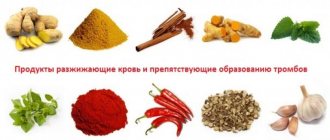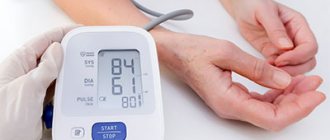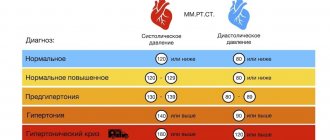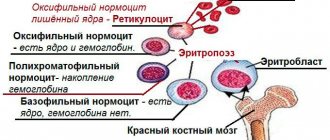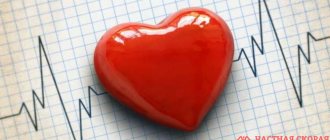The study of the effect of alcohol on the cardiovascular and circulatory systems examines a huge number of factors and parameters. A universal algorithm for the absorption, breakdown and elimination of alcohol is known.
Modern research suggests that moderate consumption of certain alcoholic beverages may even reduce the risk of developing cardiovascular diseases.
However, the parameters of this process will be determined by the composition of the particular alcoholic beverage, the level of ethanol content, etc. One of the important points when studying the effect of alcohol on the human body is the level of blood viscosity and the ability of alcohol to thin it and prevent further thickening. Why is this happening?
Let us consider in detail the universal and special cases of the effect of alcohol on the viscosity of human blood. We will also discuss what other blood parameters are affected by alcohol and explain the possible consequences of abuse.
How does alcohol affect blood viscosity?
As already mentioned, the algorithm for the influence and removal of alcohol from the body is known and universal. The first half hour after administration is characterized by improved well-being and a decrease in blood viscosity .
Blood thinning is due to the properties of alcohol. By entering the body and attracting existing fluid, alcohol helps reduce blood viscosity and improve blood flow. In this regard, the following external manifestations can be diagnosed:
- redness of the skin;
- improved mood and well-being;
- slight increase in body temperature;
- frequent urge to urinate.
After some time, during the period of ethanol decomposition, reverse processes occur. Substances resulting from decay are recognized by the body as poisons. By removing them, the body releases a large amount of fluid. As a result, blood viscosity increases and the condition worsens. are diagnosed :
- dehydration, dry mucous membranes, desire to drink;
- the appearance of swelling on the face or limbs;
- incessant headache, dizziness, migraine.
How long do alcoholics live?
The life expectancy of those who suffer from alcoholism is significantly reduced. 20% of patients live more than 50 years. Acute heart failure often causes early death in drunkards under 40 years of age. A dangerous habit is fraught with a significant deterioration in quality and a decrease in life expectancy. The risk of leaving this world prematurely increases. There is no clear answer to the question of how long alcoholics live. Much depends on the age at which a person developed a harmful addiction, whether there are associated problems, etc. That is, the life expectancy of a drinker is determined by the strength of the body. Sudden deaths before age 30 are common. The average life expectancy is 48-55 years. However, this is under fortunate circumstances. 25% of addicted people do not live to reach the specified age mark.
Only by stopping drinking in a timely manner does a person suffering from an illness get a chance to prolong their life. However, in many cases, medical assistance cannot be avoided. Then a person will be able to cope with addiction and get rid of addiction.
Other facts about the effects on the cardiovascular system
In addition to affecting blood viscosity, alcohol can affect many properties of body systems. Moreover, this impact can be both positive and detrimental.
In general, culturally limited consumption of high-quality alcohol leads to positive properties, and unlimited excessive consumption of low-quality and counterfeit alcoholic beverages leads to negative properties.
Additionally, alcohol with high sugar content tends to be harder to eliminate and has a more severe effect.
The positive effects of moderate consumption of high-quality alcohol include:
- strengthening the walls of blood vessels;
- vasodilation;
- relaxation of the nervous system;
- improving sleep quality;
- prevention of cholesterol deposition;
- improving the quality of digestion.
Negative impacts should include:
- development of hypertension due to alcohol consumption;
- the harmful effects of ethanol breakdown products on the liver and kidneys;
- reduction in the reproductive capabilities of the body;
- depression of the lymphatic and nervous systems.
One way or another, most experts do not recommend completely eliminating alcohol from the diet, but alcoholic beverages included in the diet must meet certain requirements , namely:
- preference should be given to high-quality strong alcohol and wine;
- the alcoholic drink must meet the individual characteristics of the body;
- the consumption process should be treated no less demandingly than the choice of drink;
- avoid frequent consumption.
We should not forget that the process of alcohol absorption is determined by the individual characteristics of the body.
Can I drink it to clean blood vessels?
Wine itself only slightly contributes to the cleaning of blood vessels, due to the presence of phytoncides (which improve the elasticity of the walls and reduce the likelihood of the formation of cholesterol plaques on them) and ethyl alcohol (it stimulates the breakdown of lipids that are part of atherosclerotic plaques).
But all this is relevant only when drinking small portions of wine.
Such “cleaning” of blood vessels should not be carried out in the presence of chronic liver diseases.
But this drink can be used in combination with other components, which specifically help cleanse blood vessels. Wine will slightly increase blood pressure and accelerate the breakdown of low-density cholesterol.
Review of 4 specific drinks
It is known that different alcoholic drinks have different effects on the body as a whole and the blood viscosity indicator separately. The same “strength” of alcohol-containing drinks will not mean an identical effect on the body.
Factors such as the components of the alcoholic beverage, sugar content, the distillation and manufacturing process, compliance with production conditions and technologies, etc. also have a significant impact. So what kind of alcohol will be the most beneficial?
Wine
Wine is a traditional drink for healthy people. It was this fact that was the basis for studying the effect of wine on the body. Over the course of numerous studies, scientists have obtained, interpreted and systematized extensive knowledge about wine. In the context of the benefits and harms of wine, it makes sense to pay attention to the following facts:
- wine thins the blood, strengthens the walls of blood vessels, improves blood flow;
- Wine dilates blood vessels and prevents blood clots.
- when choosing between red and white, for the benefit of the heart and blood vessels, preference should be given to red wine;
- the healthiest wine is dry;
- consumption should be limited to 175 - 350 ml during one feast;
- daily dose of dry red wine for preventive medicinal consumption - 175 ml;
- It is better to drink wine with products that enhance its taste and beneficial properties;
- in most cases, red wine is healthier for men, white wine for women;
The house wine deserves special mention. The beneficial properties are determined by natural ingredients and the careful process of home winemaking. The mild taste of homemade wine, however, may make you drink more than you should.
Cognac
Cognac is another drink that is beneficial for the cardiovascular system. Its action is somewhat similar to the action of wine, but there are also significant differences:
- Firstly, the alcohol content differs. Due to this difference, the recommended dosage will be reduced to 50-100 ml for one feast;
- secondly, cognac more clearly counteracts the development of cholesterol deposits;
- thirdly, cognac, subject to limited consumption, has a gentler effect on the nervous system and improves the quality of sleep;
- A limited amount of cognac thins the blood and leads to a decrease in blood pressure.
Vodka
The disadvantage of vodka is that this drink requires the most moisture when excreted from the body. As a result, not only severe dehydration occurs, but also the level of blood viscosity increases significantly . Thus, vodka thickens the blood. In addition, the risk of blood clots increases.
Despite this, in small doses, vodka is considered by experts to be a completely acceptable drink for consumption. It should be preferred to other wheat drinks: whiskey and low-quality moonshine.
Beer
Traditionally perceived as a light and almost harmless drink, beer has a negative effect on the body. No, of course, a glass of beer on a hot summer day will not only not do much harm, but will also contribute to the secretion of gastric juice and better tolerance of the heat. At the same time, copious and frequent use of “foam” is very harmful. Harm is caused by the following factors:
- the density of beer and traditionally consumed large volumes of this drink make it difficult to remove it from the body;
- substances contained in beer lead to a decrease in testosterone levels;
- beer consumption leads to blood thickening and the development of hypertension;
- Abuse of beer threatens the development of “beer” (“pork”) heart syndrome.
At the same time, beer contains microelements that are beneficial for the skin, hair and teeth. But the best solution for drinking beer without harm is to prefer a non-alcoholic version of the drink or significantly limit consumption.
Diet Tips to Fight Blood Clots
Eating a blood clot-fighting diet is probably the most important dietary measure you can take to prevent heart disease and stroke, even more important than controlling your cholesterol levels.
Here's what will help you best:
Eat oily fish, garlic, onions and ginger, and drink red wine (in moderation). All this thins the blood and prevents blood clots from forming.
Limit your intake of fats, especially saturated animal and plant-based polyunsaturated fats such as omega-6.
Try to eat foods that prevent blood clots at the same time as foods that contribute to the formation of blood clots. Such successful combinations include eggs with onions or smoked salmon, red wine with cheese, and the Mexican dish “chili con carne” (meat in a spicy sauce with red peppers and beans).
Caution: Don't overdo it. If you are taking anticoagulants, suffer from bleeding, or have a family history of cerebral hemorrhage, you should eat blood-thinning foods in moderation
If you have any concerns, ask your doctor to check if your blood is clotting normally. Published by econet.ru. If you have any questions on this topic, ask them to the experts and readers of our project here.
PS And remember, just by changing your consumption, we are changing the world together! econet
Rules of use for harm reduction
The basic rule for drinking alcohol to reduce harm from it is limited cultural consumption. Each drink has guidelines for responsible consumption.
In general, for wine it will be 175-350 ml, for strong alcohol - 50-150 ml, for beer - no more than 1 liter.
The recommended dosage implies that when consuming the specified amount of alcohol, the health risk will be minimal. Accordingly, in the case of consumption of “healthy alcohol”, the benefit will be more significant than the harm caused.
In addition, there are general rules based on everyday logic. They should not be neglected, even if dosage recommendations are not followed. These include the following:
- Avoid drinking alcohol in the heat, in the sun, in stuffy rooms with insufficient fresh air;
- avoid smoking, including passive smoking, when consuming alcohol;
- drink alcohol only in pleasant company;
- have a snack - accompany drinking alcohol with tasty and healthy food;
- provide access to fresh air - for better absorption and easier removal from the body.
Contraindications
According to medical recommendations, vodka and other alcoholic drinks should be strictly avoided if you have the following diseases:
- peptic ulcer of the stomach and duodenum;
- renal failure;
- liver failure;
- heart failure;
- allergy to alcohol (occurs in approximately one in 2000 people);
- age under 18 years;
- pancreatic dysfunction;
- fibrosis of the liver, pancreas;
- neuralgic disorders (for example, migraine).
You should also refrain from drinking vodka if you have diabetes or blood diseases (anemia, anemia, increased or decreased hemoglobin levels).
Other Important Recommendations
You can reduce blood viscosity without drinking alcoholic beverages. To do this, preference should be given to the appropriate product groups .
The most useful products include:
- fresh seasonal fruits, vegetables, roots and herbs;
- citrus fruits and foods high in vitamin C;
- porridge;
- dairy products;
- meat with reduced fat content;
- Fish and seafood.
The listed products not only reduce blood viscosity, but also have many other beneficial properties.
- For example, fresh fruits and vegetables in season are the most complete source of easily absorbed vitamins. The most useful are those grown by yourself, but others are also suitable, the appearance and flavor and aromatic properties of which can be mistaken for natural.
- Various cereals are good for digestion, the condition of blood vessels, hair, etc.
- Dairy products, in turn, are indispensable as a source of calcium.
- Fish and seafood contain a huge amount of essential substances, vitamins and microelements (calcium, zinc, iron, phosphorus, etc.).
To achieve the best result, in addition to being picky about food and alcohol, you will need to lead a healthy lifestyle: give up bad habits, stress, increase your time in the fresh air, and play sports.
